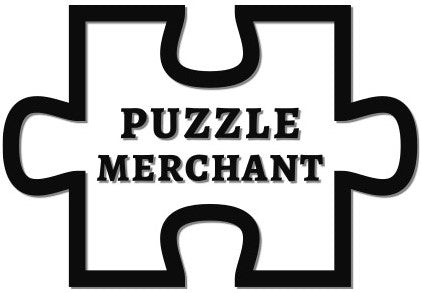In today’s fast-paced world, stress and anxiety have become common challenges for people of all ages. Whether it’s due to work pressures, academic responsibilities, or personal struggles, finding effective ways to unwind and relax is essential for overall well-being. One surprisingly powerful yet simple tool for stress relief is the jigsaw puzzle. Engaging in puzzle-solving provides a soothing mental escape, promotes mindfulness, and fosters a sense of accomplishment. In this article, we’ll explore how jigsaw puzzles contribute to stress reduction, relaxation, and overall mental wellness.
The Science Behind Stress and How Puzzles Help
Understanding Stress and Its Effects on the Brain
Stress triggers the release of cortisol, the body’s primary stress hormone. While short-term stress can be beneficial in certain situations, prolonged exposure to high cortisol levels can lead to:
- Anxiety and depression
- Difficulty concentrating and memory problems
- Insomnia and other sleep disturbances
- Increased risk of physical health issues such as high blood pressure
How Jigsaw Puzzles Counteract Stress
When engaging in a jigsaw puzzle, the brain enters a state of focus similar to meditation. This process:
- Reduces cortisol levels and encourages relaxation.
- Activates the brain’s reward system, releasing dopamine—a neurotransmitter associated with feelings of pleasure and motivation.
- Shifts attention away from stressors, providing a mental break from daily worries.
The Meditative Nature of Puzzle-Solving
Promoting Mindfulness and Present-Moment Awareness
Mindfulness—the practice of being fully present in the moment—is a proven technique for reducing stress. Working on a jigsaw puzzle naturally encourages mindfulness by requiring complete attention to details such as:
- Shape, color, and pattern recognition.
- Logical thinking and spatial awareness.
- The gradual progress of fitting pieces together.
Creating a Sense of Calm and Focus
The repetitive and structured nature of puzzle-solving can have a calming effect similar to meditation or deep breathing exercises. This activity provides a tranquil environment where the mind can detach from overwhelming thoughts and focus on a single, rewarding task.
Jigsaw Puzzles as a Therapeutic Tool
Cognitive and Emotional Benefits
Puzzles not only help with relaxation but also offer cognitive and emotional advantages, including:
- Improved problem-solving skills – Engaging in logical reasoning helps train the brain to approach challenges with a structured mindset.
- Enhanced patience and perseverance – The gradual process of completing a puzzle reinforces the value of persistence and resilience.
- Boosted self-esteem – Each completed section or finished puzzle provides a sense of achievement, which can be particularly beneficial for individuals struggling with anxiety or depression.
Puzzles in Therapy and Rehabilitation
Many therapists and mental health professionals incorporate jigsaw puzzles into therapy sessions to:
- Help individuals manage anxiety and PTSD by providing a soothing, non-verbal coping mechanism.
- Encourage social interaction and communication in group therapy settings.
- Assist in cognitive rehabilitation for patients recovering from brain injuries or neurodegenerative conditions such as dementia.
The Role of Puzzles in Enhancing Sleep Quality
A Screen-Free Alternative for Nighttime Relaxation
Excessive screen time before bed has been linked to sleep disturbances due to the blue light emitted by electronic devices. Replacing screen-based activities with puzzle-solving in the evening can:
- Reduce exposure to blue light, supporting natural melatonin production.
- Provide a relaxing, pre-sleep routine that signals the brain to wind down.
- Improve overall sleep quality by lowering stress and anxiety levels before bedtime.
Encouraging a Healthy Work-Life Balance
For individuals who struggle with switching off after a long day, incorporating jigsaw puzzles into their routine can create a dedicated relaxation period, reinforcing boundaries between work and personal time.
Social and Family Bonding Through Puzzles
Strengthening Relationships
Jigsaw puzzles provide an excellent opportunity for social connection, whether through:
- Collaborative problem-solving with family and friends.
- Engaging in a shared hobby with a partner.
- Joining puzzle clubs or online communities to connect with like-minded individuals.
Reducing Social Anxiety and Enhancing Communication
For individuals who experience social anxiety, puzzles offer a low-pressure way to engage with others. Working on a shared goal can encourage conversation without the stress of direct social interaction, making it an excellent icebreaker activity.
Tips for Incorporating Puzzles Into a Stress-Relief Routine
Choosing the Right Puzzle
To maximize relaxation benefits, select a puzzle that aligns with your preferences and skill level:
- For beginners: 500-piece puzzles with clear images and patterns.
- For intermediate solvers: 1000-piece puzzles with moderate complexity.
- For advanced puzzlers: Large, intricate puzzles with detailed artwork or abstract designs.
Creating a Relaxing Puzzle-Solving Environment
To enhance the calming effects of puzzle-solving, consider setting up a dedicated puzzle area with:
- Soft lighting and comfortable seating.
- Background music or nature sounds to create a peaceful ambiance.
- A clutter-free surface with enough space to lay out pieces easily.
Making Puzzle-Solving a Daily Habit
Incorporating jigsaw puzzles into your routine doesn’t require large time commitments. Even 15–30 minutes a day can provide stress-relief benefits. Consider:
- Starting or ending the day with a short puzzle session.
- Using puzzle breaks as a way to reset your mind between tasks.
- Setting long-term puzzle goals to gradually work toward completion.
Conclusion
Jigsaw puzzles are more than just a fun pastime—they are a powerful tool for stress reduction, relaxation, and mental well-being. By engaging the brain in mindful focus, promoting problem-solving skills, and providing a sense of accomplishment, puzzles serve as an effective way to unwind from the pressures of daily life. Whether you’re looking for a solo relaxation method, a family bonding activity, or a way to enhance cognitive function, incorporating puzzles into your routine can lead to lasting benefits for both mind and body. So, the next time you feel overwhelmed, grab a puzzle, take a deep breath, and let the pieces fall into place.
About the writer: Will Roya is a lifelong gaming and puzzle enthusiast. He is the founder of Puzzle Merchant and author of the book Card Night.

Last update date: 3/26/25

